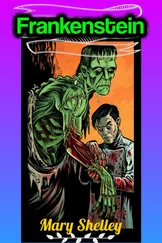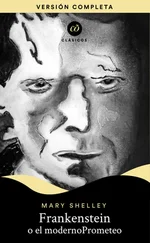Mary Shelley - The Fortunes of Perkin Warbeck
Здесь есть возможность читать онлайн «Mary Shelley - The Fortunes of Perkin Warbeck» — ознакомительный отрывок электронной книги совершенно бесплатно, а после прочтения отрывка купить полную версию. В некоторых случаях можно слушать аудио, скачать через торрент в формате fb2 и присутствует краткое содержание. Жанр: unrecognised, на английском языке. Описание произведения, (предисловие) а так же отзывы посетителей доступны на портале библиотеки ЛибКат.
- Название:The Fortunes of Perkin Warbeck
- Автор:
- Жанр:
- Год:неизвестен
- ISBN:нет данных
- Рейтинг книги:3 / 5. Голосов: 1
-
Избранное:Добавить в избранное
- Отзывы:
-
Ваша оценка:
- 60
- 1
- 2
- 3
- 4
- 5
The Fortunes of Perkin Warbeck: краткое содержание, описание и аннотация
Предлагаем к чтению аннотацию, описание, краткое содержание или предисловие (зависит от того, что написал сам автор книги «The Fortunes of Perkin Warbeck»). Если вы не нашли необходимую информацию о книге — напишите в комментариях, мы постараемся отыскать её.
The Fortunes of Perkin Warbeck — читать онлайн ознакомительный отрывок
Ниже представлен текст книги, разбитый по страницам. Система сохранения места последней прочитанной страницы, позволяет с удобством читать онлайн бесплатно книгу «The Fortunes of Perkin Warbeck», без необходимости каждый раз заново искать на чём Вы остановились. Поставьте закладку, и сможете в любой момент перейти на страницу, на которой закончили чтение.
Интервал:
Закладка:
Monina had been left in Alcala-la-Real, a prey to fear, to gaze from the steep summit on the plain, whereon, beyond her sight, was acted the real drama of her life; to question the wounded, or the messengers that visited Alcala, and to address prayers to the Virgin, were the sad varieties of her day. In the midst of this suspense two unexpected guests visited her abode—her father, and an Irish chieftain; a Yorkist, who came to lead the Duke from his Spanish abode, to where he might combat for his lost crown. De Faro had not heard of the death of Madeline; and with awe his child beheld the tears that bedewed his rugged cheeks at this sad termination of his ocean-haunting vision. He embraced his daughter—"Thou wilt not desert me; we will leave this fated spot: and thou, Monina, will sail for ever with thy father on the less barbarous sea."
De Faro's companion was named Lord Barry. He was Baron of Buttevant, in the county of Cork, and allied to the Geraldines, chiefs of that soil. He had fought at Stoke, and been attainted by Henry; so that he was forced to wander a banished man. Eager to reinstate himself, every Yorkist plot numbered him among its warmest partizans. He had for some time resided either at Paris or at Brussels, where he often held counsel with Lady Brampton, Weary of delay he at last stole back to Ireland, to see whether his noble kinsmen there would abet and rise in favour of the Duke of York. He came away, proud and delighted with his success: promises of service for the White Rose had been showered on him—his eloquence and enthusiasm conquered even Lady Brampton. War also seemed impending between France and England: if that were once declared, every objection would be obviated. At any rate, the times seemed so fair, that she agreed with Lord Barry to visit the present home of the young English Prince; and, as if to further their designs, Sir Edward Brampton was at that moment requested by the Archduke Maximilian to undertake a private embassy to Lisbon. Thither they had sailed, and now, leaving this lady in Portugal, Lord Barry had continued his voyage to Andalusia, with the intention of returning again to Lisbon accompanied by the the promise and hope of the House of York: He met de Faro in the port of Malaga: the name was familiar to him. They journeyed together to Alcala-la-Real.
Lord Barry was all eagerness that the English Prince should immediately join Lady Brampton at Lisbon. It was agreed that they should proceed thither in de Faro's caravel. The mariner abhorred the name of warfare between Spaniard and Moor; and Madeline's death only added poignancy to this sensation. He would not look on the siege of Granada. While the Irish noble and Monina proceeded to the camp to prepare the cousins, he returned to Malaga to bring round his vessel to the nearer port of Almeria. Lord Barry and the fair Moor commenced their journey on the morning of a most burning day; they wound down the steep declivities of the Sierra, and entered upon the bright blooming plain. Noon with all its heat approached. They rested under a grove of mulberries, reposing by a brook, while Lord Barry's horse and Monina's mule were tied to the nearest shrubs. Slight accidents are the wires and pullies on which the machinery of our lives hang. Stung by flies, the noble's horse grew restive, broke his rein, and galloped away; through the thick shade his master pursued, till tramp of feet and crackling of branches died on Monina's ear. A quarter of an hour, half an hour passed, when on her solitude came a Moorish voice, an exclamation in the name of Allah, and the approach of several men whom already she painted as enemies. To take to her mule, to ride swiftly through the grove, was the impulse of her fear; and, when again silence gave her token of security, she found that she had lost her way. It was only after many vain attempts that she extricated herself from the wood, and then perceived that she had wandered from the direct road to Granada, whose high towers were visible at a distance. The burning July noonday sun scorched her. Her mule lagged in his pace. As a last effort she sought a plantation of elms, not far distant. The grateful murmur of flowing waters saluted her ears as she approached. For a few minutes more she was exposed to the glaring sunshine, and then entered the cool umbrage of the trees—the soft twilight of woven leaves and branches; a fountain rose in the midst, and she hastened to refresh herself by sprinkling herself with cool waters. Thus occupied she thought she was alone in this sequestered nook, when a crash among the underwood startled her; the mule snorted aloud, and from the brake issued a mare caparisoned with saddle and bridle. She had lost her rider; yet her distended nostrils, the foam that flaked her sides, the shiver that made her polished skin quiver, spoke of recent contest or flight. She looked on her—could it be? She called her "Daraxa," and the animal recognized her voice; while in answer to the dreadful surmises that awoke in her heart, a low groan was heard from the near bank. Turning, she beheld the form of a man lying on the herbage; not dead, for he groaned again, and then stirred, as if with returning sense. Quick as lightning she was at his side; she unlaced his helmet, nor did she need to look at his pallid countenance to be assured of what she already knew, that Richard of England lay there, but for her help, expiring. She filled his helm with water, and sprinkling it over him, he opened his eyes, and groaning again, strove to clasp his head with his unnerved hand. With light fairy fingers she released him from his coat of mail, and saw on his right side a mass of congealed blood, which his faintness had made cease to flow from his wound. Fearing that it would bleed again as he revived, she bound it with his scarf and her own veil, and then gave him water to drink; after which he showed still more certain signs of recovery.
It was wonder to him to find himself alive, when already he had believed the bitterness of death to be passed; still greater wonder was it to behold his own sweet Monina, like a spirit of good, hovering over to recover him. He tried to raise himself, and she bent down to support him, resting his head on her gentle heart; he felt its beating, and blest her with a thousand soft thanks and endearing names. Though the wound in his side was deep, yet now that the blood was staunched, it did not seem dangerous. The immediate cause of his swoon was a stunning blow on his head, which had beat in the iron of his helm, but inflicted no further injury. It was long however before he could move; and the evening shades had made it almost night, before he could sit his horse and slowly quit the wood. Wishing to conduct him to where they might find succour, Monina directed his steps to a village, east of the grove. They had hardly ridden half a mile, when Richard felt dizzy; he faintly called her to his side—she received him as he fell, and, supporting him to a bank, called aloud in agony, in hopes that some wandering soldier or peasant might be near to aid them. It happened to her wish; several countrymen, who had been carrying fruit to the Christian camp, passed them—she conjured them in the Virgin's name, to assist a soldier of the faith, a crusader in their cause. Such an appeal was sacred in their ears; they contrived, with the poles and baskets in which they had carried their fruit, covering them with a part of their habiliments and the saddle-cloths of the animals, to form a sort of litter on which they placed Richard. Monina followed on foot, clasping his hand; the men led the horses: and thus they proceeded up the mountains to a village about two leagues from Granada, where every house was open to them. The Prince was permitted to repose in the habitation of the Alcalde, and the deep sleep into which he soon fell was a dear assurance to his friend's anxious heart, of the absence of danger, and a promise of speedy recovery.
Читать дальшеИнтервал:
Закладка:
Похожие книги на «The Fortunes of Perkin Warbeck»
Представляем Вашему вниманию похожие книги на «The Fortunes of Perkin Warbeck» списком для выбора. Мы отобрали схожую по названию и смыслу литературу в надежде предоставить читателям больше вариантов отыскать новые, интересные, ещё непрочитанные произведения.
Обсуждение, отзывы о книге «The Fortunes of Perkin Warbeck» и просто собственные мнения читателей. Оставьте ваши комментарии, напишите, что Вы думаете о произведении, его смысле или главных героях. Укажите что конкретно понравилось, а что нет, и почему Вы так считаете.












